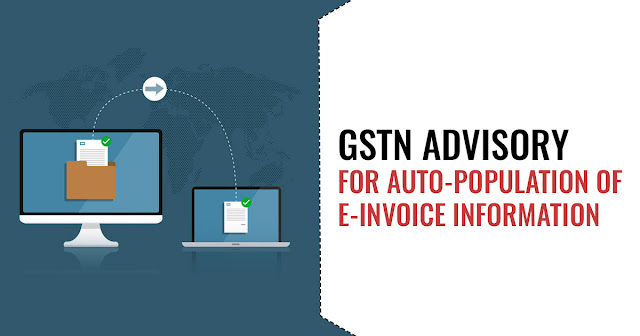The Goods and Services Tax Network ( GSTN ) has given an Advisory on Auto-population of E-Invoice details into GSTR-1.
In March 2021, the auto-population of e-invoices into GSTR-1 has not been completed yet, and it seems to be taking more time. Thus, the mentioned assessee who are posting e-invoices are said that they should not wait to finish the auto-population and, rather than that, do with the preparation and filing of GSTR-1 in March 2021 (through the last date) upon the grounds of particular information according to their previous records.
To check whether an HSN Code is true or not, visit the GST Portal: www.gst.gov.in > Services > User Services > Search HSN Code. The HSN Master for download in Excel format will also be printed shortly on the same page.
If the HSN of specific goods or services is rather valid, however not present in the HSN master, then raise the ticket on the GST self-service portal: https://selfservice.gstsystem.in/. The other FAQs on e-invoice commenced. The latest version of FAQs can be accessed here (Note: latest additions and modifications in this version are indicated in blue).
For the advantage of taxpayers, a short ready reckoner on e-invoice is released in English and in Hindi. Please see the identical hereabouts: https://www.gstn.org.in > Our Projects > e-invoice > At a Glance > e-invoice – At a Glance/e-invoicing – Ek Nazar Me
What is the GSTN Portal?
The indirect Taxation Platform for GST has been developed by the Goods and Services Tax Network (GSTN) to help taxpayers in India file returns, pay indirect tax liabilities, and comply with other requirements. IT infrastructure and services are provided to the Central Government, State Governments, taxpayers, and other stakeholders for the implementation of GST in India.
Read Also: Smart Features: Must-Have GST Invoicing Software for Fast Compliance
A unique and complex IT initiative, the GST System Project was established for the first time as a uniform interface between the Centre and States to collect indirect taxes through a common and shared IT infrastructure. The Central Board of Indirect Taxes and Customs (CBIC), a Department that used to work under different laws, regulations, procedures & formats and consequently the income tax department worked in multiple independent sites, which were combined into one system with consistent formats and interfaces for taxpayers and other external stakeholders.


Comments
Post a Comment